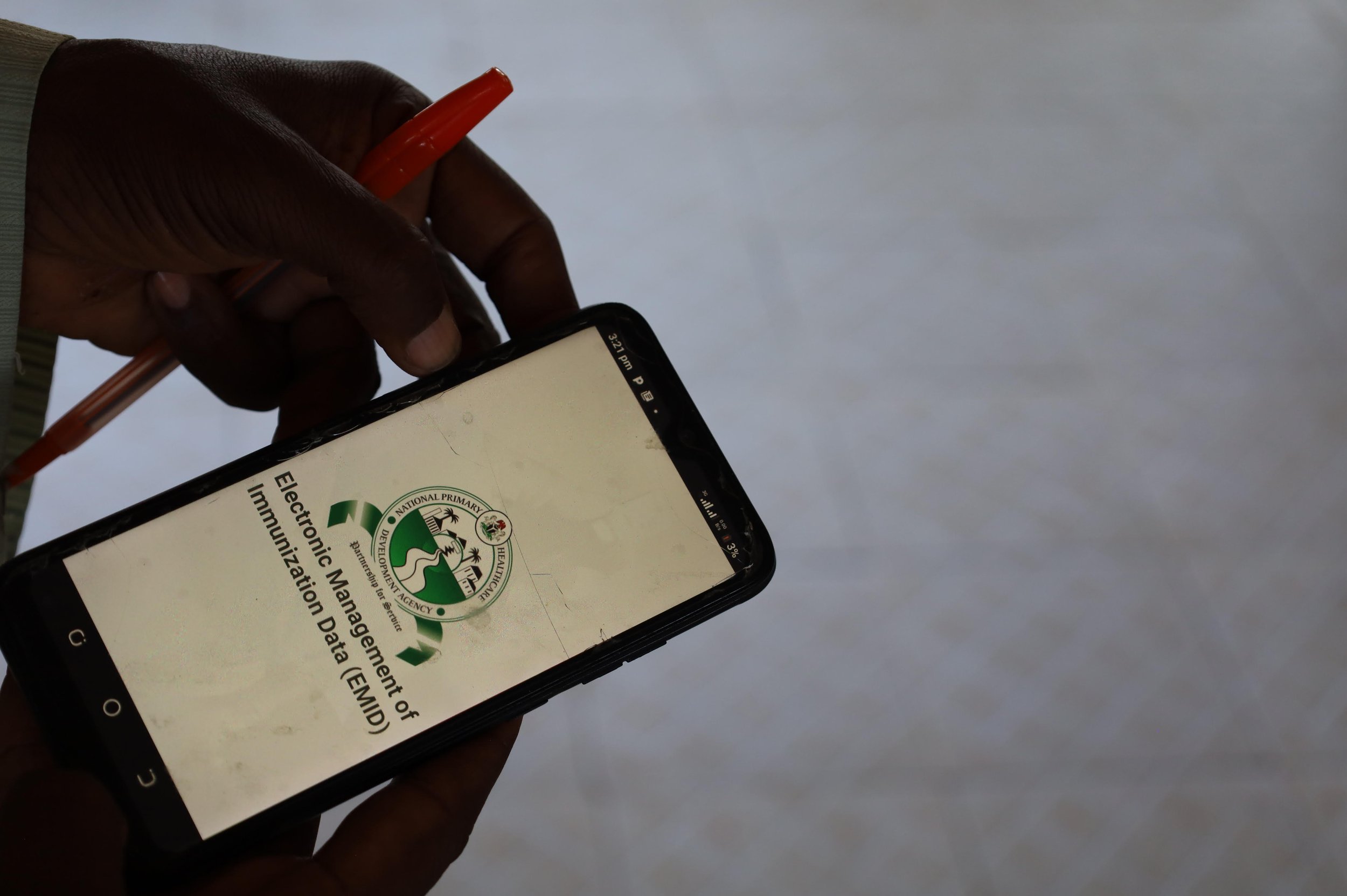Opening interface of the EMID Mobile Application
The Electronic Management of Immunization Data (EMID) is Nigeria's homegrown digital platform for the collection, storing, and analysis of covid-19 immunization data. It is domiciled at the National Primary Health Care Development Agency (NPHCDA).
The first version of the app was rolled out by the Nigerian Minister of Health in 2021, as a platform to ensure a smooth COVID-19 vaccination process across the country.
With the rise in the number of unvaccinated adults and unimmunized children in Nigeria, NPHCDA saw the need to scale up the EMID application beyond its regular use for COVID-19 vaccination data to capture and store information on other immunization activities. However, the capacity of the application was below its intended use, with multiple functionality errors, hence the need for an optimized version of the app.
eHealth Africa (eHA), partnered with NPHCDA, to optimize the app for newly defined and broadened functions. They further piloted its use in selected states towards its deployment for use.
The mobile application provides a gateway for inputting immunization data. This enables the end-user-recorders to work hand in hand with vaccinators across the country to upload data in real-time to the platform. This data enables stakeholders to analyze and monitor the progress of vaccination teams on the field, and where necessary, come up with better strategies to enhance the effectiveness of the immunization program.
Tasiu shehu Jigawa State EMID focal person
Photo Credit: eHA
Abdullahi Muhammad, like other recorders, was quick to spot the changes the new app had come with. He observed: “a lot of features have been simplified on the new EMID application. The data input process and its submission to the server have all been simplified, this will make the work easier.”
Globally, digital tools such as EMID help keep track of information about people vaccinated, types of vaccines they received, doses, location, and other relevant data key to the success of vaccination campaigns. As of January 2023, three years after the commencement of covid-19 vaccination, over 60 million eligible Nigerians have received the vaccine. It is safe to say that Nigeria's immunization strategy, of which EMID is a part, has been successful. The optimization of the EMID app adds value to the overall success, especially on the EMID application’s ease of use, optimized process flow, help desk setup, and renewable power supply.
The optimized EMID application has integrated a client validation tool used to take pictures of the client to validate their presence at the vaccination site. Other validation features such as the geofencing feature ensure that data is only collected by fixed teams when they are within the geographical location assigned for their data entry to be registered on the app, eliminating the possibility of procuring services and the new liveness detection feature which ensures that beyond the still photos of clients, facial feature movements such as blinking are required for verification of client vaccination. This eliminates the possibility of utilizing pictures/static images for data entry. The national team can now have a higher level of confidence in the vaccination data generated using the tool.
The new application also allows recorders to capture data in environments where network connectivity is at its lowest. The specific additional feature is a draft page that prevents the loss of incomplete data. Recorders no longer need to resort to manual synchronization of data when there is internet connectivity as the new application allows automatic data synchronization once internet connectivity is restored. The sort and filter functionality has also been included to allow for ease in identifying previous records via the new native EMID mobile application. Rilwanu Dahiru, another EMID Recorder, describes the use of QR codes for client search as making their work even easier. He says, “if I have the QR code of a client, I search directly for the record without inputting the vaccination number or name.”
Overall, the level of flexibility on the optimized app now allows vaccinators to record and validate client details themselves without having a different validator assigned to them while on duty.
The troubleshooting feature-the FAQs and Help center provides easy access to support questions or challenges that arise while using the application. The help center also has links to the various channels that allow for direct communication with the EMID helpdesk support office.


